Most physically disabled people had no access to wheelchairs or crutches. Many were seen by their families as curses or bad omens. In rural areas they’re at high risk of extreme poverty because of the lack of access to education, health care, housing and employment.
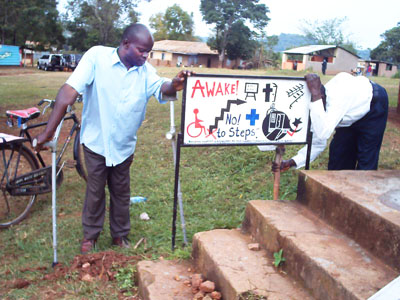
by Oriana Gagnon Martinez
The Constitution of Uganda has prohibited discrimination against people with disabilities since 1995, but since 2005 the government has increased its support of the rights of the disabled, especially for giving them equal employment opportunities.
The Persons with Disabilities Act of 2006 targeted discrimination against people with disabilities, and encouraged private employers with ten or more persons with disabilities with a 15% tax reduction. This was followed by the 2006 Equal Opportunity Act and the Employment Act which also prohibited discrimination based on disability in employment.
The most recent government effort was the Universal Primary Education Act of 2008. It helps any family to send four children to school by giving them free primary education, including disabled children.
As for the future, there is the Uganda Vision 2040, which recognizes the needs of the 7 per cent of the population that live with disabilities (of which 48% have permanent disability), and the Poverty Eradication Action Program that also identifies the needs of people with disabilities.
At the same time, community organizations like the Uganda National Action of Physical Disability are working to promote programs of rehabilitation and full social integration.
They raise awareness among the authorities and general public, and also within the disabled community, about the challenges and potential of people with disabilities, and they educate people on the prevention of certain disabilities along with providing appliances and mobility aids.
There are also community programs that advocate for accessibility, and others to promote disability sports and economic empowerment. Improved education and employment opportunities would certainly mean a brighter future for people with disabilities, of any kind, in Uganda.
Here is an updated an Upstream Journal article published in 2005 on the rights of the disabled in Uganda.
Uganda: Social attitudes need changing
by Marie-Noel St.Hilaire.
Somewhere in Uganda, a child sits alone in his backyard, day after day. He is one of many disabled children in the country who do not have access to support like wheelchairs and crutches, and their environment itself poses its own obstacles. They are often denied the opportunity to go to school, and without an education they become the poorest of the poor.
According to Elijah Musenyente of Uganda’s Society of Hidden Talents (HITS), Uganda’s tradition has it that disability is a curse, bad luck or omen. The disabled are often kept in the backyard for fear of shaming the family. They are denied the right to go to school, marry and hold a job. Even if they escape their family’s confinement, it remains difficult to make a living when equipped with very little skills.
HITS works at the community level to teach the disabled as well as the able-bodied life skills and to build their confidence. It is also important to work with the community as a whole. One of the greatest challenges in improving the rights and opportunities for disabled people within society in Uganda is convincing the population at large of the potential and capacities held by the disabled.
“We raise awareness for people to understand that disabled people are also human beings, they are the same as others,” Richard Mugisha, director of People with Disabilities Uganda (PWDU), told me. He said that a change in attitude is needed at all levels of society, perhaps most importantly at the government level, where the disabled are often not considered when economic opportunities arise.
The PWDU works throughout Uganda to change the fate of many children who, aside from growing up in a poverty stricken nation, face even greater obstacles due to their disabilities. Mr. Mugisha’s organization is working to change people’s attitudes while simultaneously trying to address economic issues which force families to make difficult choices.
The government does not view disabilities as a priority, and so does not provide services or financial support to people with disabilities or their families, he says. Aside from lobbying the government, PWDU also works with communities, raising awareness and providing information that may help families with disabled children better understand their child’s disability. It makes sure that the children’s needs are met in terms of health care, clothing and food, trying to fill the social services gap left by the government.
Unfortunately, they cannot reach everyone. In rural areas, for example, that do not have access to support and are, in Mr. Mugisha’s words “less enlightened,” there is a persistent problem of infanticide. Elijah Musenyente, chairman of HITS has also collected information about the discrimination and torture that the disabled are sometimes subjected to. Organizations such as PWDU and HITS are essential in bringing about a change in these practices.
Underlying these social attitudes is a more complex economic situation that cannot be resolved through hand-outs. In order for disabled people to obtain a degree of independence, they need a source of income.
“Disabled people go on the streets begging. That’s their work, their job. They beg,” Mugisha says. Some are lucky enough to encounter an organization like PWDU working to provide micro-employment opportunities, such as pig and chicken rearing. The organization also tries to teach life skills and emphasizes activities that promote sustainable living.
For a disabled child to have a better standard of living and access to education, one must not only look at the child but also at the problems faced by the family supporting that child, and how that family is forced to make a living.
Without the proper emphasis on the family unit and changing the opportunities available for disabled family members, solutions remain superficial and short term.
Asked what role the international community has in this issue, Mugisha said, “The international community needs to provide some support for these communities, support in terms of looking at the whole puzzle in terms of equal opportunities and services.”
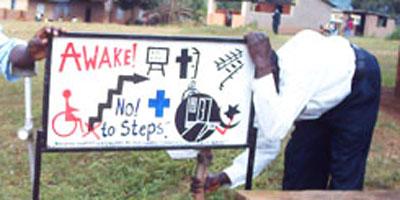
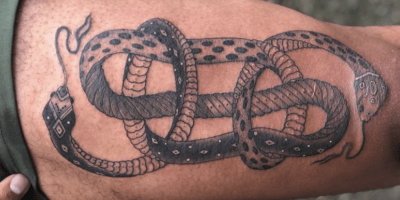

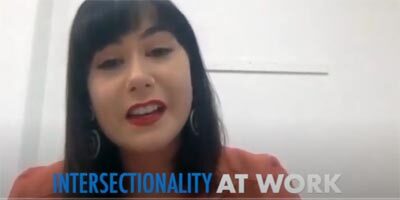
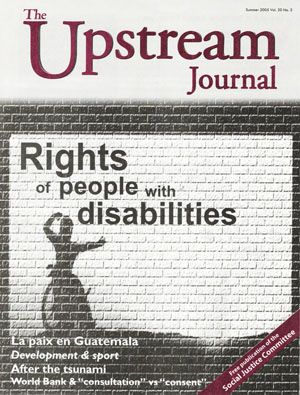

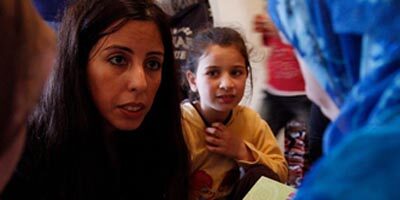
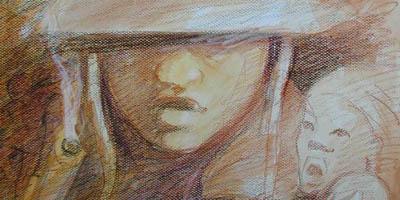
Peninnah H. Akwii
The problem of PWDs in Uganda starts with lack of Inclusive education for the disabled children who are often stigmatized in schools. We need to focus on the education of the disabled children so as to give them a chance of attaining decent Jobs. We thank all those who support PWDs. God Bless You.
ojilong emmanuel
Helo thank you for your great work you are doing and i would like to say since i was born upto now i have never benefited out of any government program in uganda as adisabled person thank you
KALAMAGI GODWIN
here in Uganda most people with disabilities are not give chance to express themselves but they only discriminated that is say they are not allowed to go to school and those who go do not get jobs
Navin Parekh
Hello,
My organization,CanUgan Disability Support provides assistive devices like tricycles, white canes, crutches, calipers and others to people with disabilities in Kasese District. I am very interested making a connection in order to explore options for cooperation.
Best regards!
Navin Parekh
CanUgan Disability Support
Ottawa
Canada
http://www.canugan.org